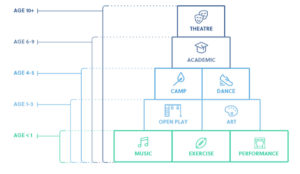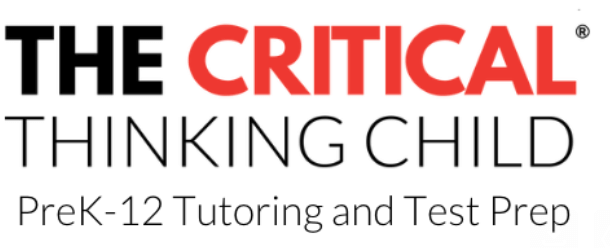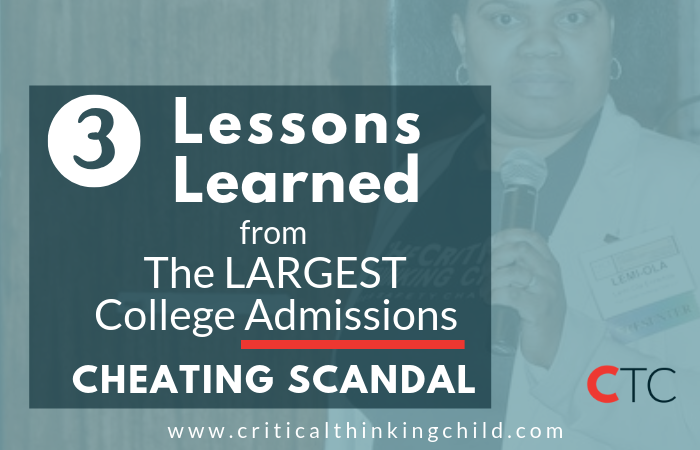The recent college admissions cheating scandal was a wake-up call for parents everywhere, and if you’re feeling overwhelmed and betrayed, it’s understandable. This scandal is confirmation that students who make it into selective schools don’t always do so on their own merit, and it’s left the parents of hardworking students who don’t have as much money or as many connections as those allegedly involved wondering where to go from here.
As a parent who has high hopes for your child, you may feel like this is a sad wakeup call. Selective schools at all levels, from kindergarten through college, are highly competitive by nature, and this adds a layer of complexity. So, what now? How can you prepare your child for what feels like a rigged system?
In reality, many students do get admitted to selective schools based on merit. Many of the success stories you’ll find include ordinary parents who have implemented simple strategies to help their children achieve academic success. I’ve put together some advice for parents who want to raise smart, high-achieving children, no matter what their background.
Tip #1: Start Early – The Preschool and Elementary Years Matter
It’s never to early to start preparing your child for their future. The elementary years – and even earlier – are important. It’s during this time that your child’s brain develops quickly, acting like a sponge. As your child learns more about the world around them, you have the chance to help build a strong foundation of critical thinking skills and cognitive abilities. And when they learn these skills early on, they’re set up for success later in school and life.
Incorporate fun, at-home activities that encourage academic success
Many states begin standardized tests in the third and sixth grade. Ideally, you should know where your child stands in reading, math, and science well before these exams. This means going beyond the classroom and making sure your child has access to enriching activities at home. Remember, as a parent, you’re your child’s most influential teacher.
The 2019 Out of School Programming and Trend Report by Sawyer (a Brooklyn-based technology company that connects parents with enriching childhood experiences) provides fascinating insights into how the modern American family thinks about and purchases out-of-school programs for their children.
Based on their transaction history of hundreds of thousands of purchases, parents tend to enroll young children in activities related to cooking, art, music, dance, and physical activity. Around five years old, the focus shifts to more academically focused activities, such as language and STEM.

While it’s important to provide students with activities that keep them busy and active, waiting until kindergarten to begin academic enrichment often means waiting too long. Aim to include loosely-structured academic experiences alongside other activities, so your child has a chance to build these foundational skills early.
By starting young, your child has a better chance to get ahead. By the time they’re in kindergarten, they’ll feel confident with the content and possibly even prepared for gifted or accelerated classes. Early preparation doesn’t mean that fun is off the schedule. This isn’t about taking the joy out of learning, it’s about making room for learning to become a fun part of the schedule, while also working to close achievement gaps.
Begin tutoring and enrichment early
Tutoring isn’t just for students who are falling behind. It’s a way to help your child continue to build their critical thinking skills in a structured environment where they receive more personalized support. Often, parents wait too long before enrolling their children in tutoring – often until middle or high school when they’re struggling in a particular subject. But tutoring in the elementary years provides another avenue for practice and a way to relieve pressure when a test is looming.
So what exactly does tutoring entail? It depends on the tutoring option you select. It may be a more structured session with an assigned tutor, an academic enrichment experience like the Critical Thinking Child bootcamps, or even staying 10-15 minutes after school to ask the teacher additional questions.
A good starting point for parents is to look at their child’s NWEA Map, which indicates their grade level performance in comparison to other students at a national level (if you need help reading the NWEA Map scores, head here for a breakdown).
Feel like you’re late to the game? So did I.
All of this advice is well and good, but if your child is in upper elementary school or above, you may be worried that you missed the boat. Don’t worry. It’s never too late to begin.
In fact, I went through this exact experience with my son. When I decided to enroll him in a gifted program and he was rejected, I was floored. I remember feeling disappointed and embarrassed. I felt as though I’d failed my son. It was then that I became passionate about developing critical thinking skills, and I began to incorporate these skills into his daily routine.
Yes, I had ground to make up, but it wasn’t a hopeless situation. As I worked with my son, he quickly build those foundational skills that allowed him to become a critical thinker for life. Critical thinking skills are universally useful and can be learned at any age. Young children may have it easier, but if you find yourself starting later, there’s nothing to worry about. You’re still doing your child an incredible service by providing them with these skills.
Tip #2: Grow Your Mindset
You don’t have to rely on the future success of your children to validate who you are as a parent. You are extraordinary as you are, and have been a wonderful parent since the moment your child came into your life. You have the ability to take ordinary activities and use them to help your child be successful on their academic journey. All you need is guidance in the form of a road map for success.
In this competitive world, we want what’s best for our kids, and we can’t do it alone. Without a roadmap, parents often fall victim to stress and anxiety, and feel like they don’t know where to start. This isn’t good for you or for your child – it creates a narrower view about education and takes the fun out of learning.
If you don’t have a roadmap, it’s not your fault. Most parents aren’t handed the tools to help their children develop these critical thinking skills. But the tools are out there if you know where to look, and the right guidance can make a huge difference.
It’s okay to look for help
Learning is an ongoing process, for yourself as well as your child. If you’re looking for support, don’t be afraid to join a professional learning network for parents, or search for trusted experts. When you invest in your own learning alongside your child’s you’ll feel more prepared to take on the many hurdles of academic learning.
Who makes a good guide? Find someone who has had a similar experience to you and can understand your child’s needs, but who also has found solutions to the struggles you may be encountering. Your chosen mentor should be knowledgeable, compassionate, and have a deep love for helping children learn.
Be open to alternate paths
In addition, remember that there are many paths to success. Instead of focusing all of your time and energy on one selective “dream” school, explore nontraditional routes, such as homeschooling or cyberschools. This can take some of the pressure off if your child doesn’t perform as well as you would like on tests, or if they aren’t accepted into your choice school. Seek out others who have taken these paths and learn from their experiences.
Yes, it can be disappointing if your child doesn’t get accepted into your choice of schools or programs, or if the opportunity turns out to be a poor fit. Be careful not to carry your stress and disappointment over to your child. Instead, turn it into an opportunity for deeper learning and seek out support.
At the end of the day, it’s not about getting in, it’s about what your child learns after they get in. Your child can have tremendous learning experiences and receive an incredible education if you find the right resources and advocate for your child in a thoughtful, purposeful way.
It’s the learning that matters
While it’s exciting to be accepted to a selective school, the real accomplishment is being present and learning. If your child is admitted to one of these programs, your work isn’t finished. Learning never stops, and there are tons of opportunities to carry the lessons of school into the home. Even the best teachers can’t do it alone.
Help your child develop a growth mindset where they ask questions, explore with curiosity, and learn based on their environment. Start talking to your child about the purpose of education at an early age and engage them in real-world activities that foster learning, like community service work. Show them that mistakes are okay, and that failure is a learning opportunity.
Tip #3: Help Them Find Their Passion
When you help your child learn foundational skills, it fuels their future passions. Instead of the dreaded busy work that keeps students working without learning, encourage your child to explore what makes them curious, excited, or engaged in their world.
By relating their learning to their passions, you’re able to make education more tangible. Learning becomes a fun activity, rather than an anxiety-inducing drudgery. There are a few easy signs that sure your child is on the right path:
- Your child talks more than you do. When you’re being met with a barrage of questions, opinions, and insights, there’s a good chance your child is excited about the topic.
- Your child actively seeks more information. Absorption in a topic is a great indicator that you’ve hit upon something your child is eager to stay focused on.
Remember, each school year is a marathon, not a sprint, and each year builds upon the last. Every learner is different and unique, including your child. Be present so you can guide them and customize their experience for their needs. Find what works for you and your child, and keep it simple.
If you’re not sure where to start, begin by encouraging your child to learn SMART Skills. These will provide the foundation that will allow them to develop in-demand knowledge and skills and help them go even further into their personal interests.
Remember: You Are Your Child’s Greatest Teacher
While you can’t control whether a prestigious school will admit your child, you can control how you prepare them to be high-achieving learners who are excited about the world around them. When you broaden your perspective from the thought of admissions you’re able to unlock a world of possibility for you and your child.



